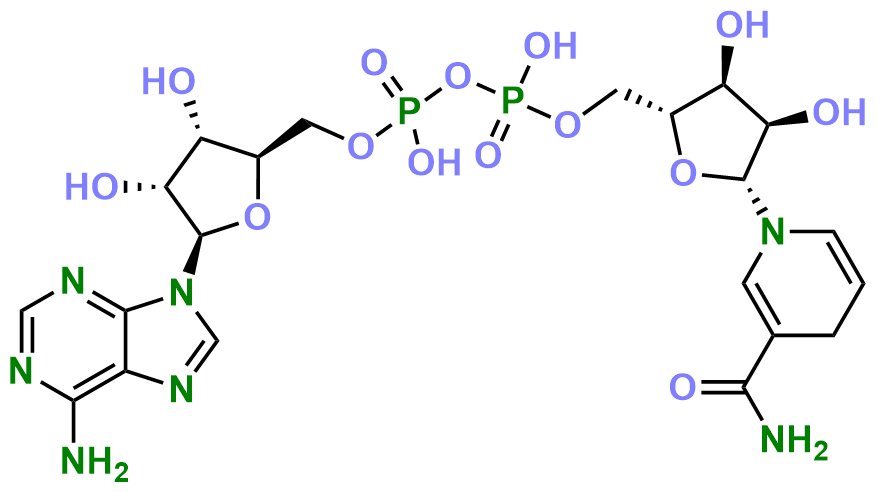NADH Analysis Service
- Identify new disease biomarkers
- Improve disease diagnosis accuracy
- Expedite the discovery of novel therapeutics
- Provide insights into disease mechanisms
- Animal tissue ≥ 100 mg
- Plant tissue ≥ 200 mg
- Serum/ Plasma ≥ 200 μL
- Urine ≥ 2 mL
NADH (Nicotinamide Adenine Dinucleotide, Reduced Form) is an essential coenzyme in cells that participates in various biochemical reactions. NADH is the reduced form of NAD⁺ and consists of nicotinamide, adenine, two ribose units, and two phosphate groups. Its chemical formula is C21H27N7O14P2, with a molecular weight of approximately 663.43 g/mol. The primary function of NADH in the body is to act as an electron carrier and energy mediator, playing a crucial role in cellular respiration, energy metabolism, and redox reactions. High levels of NADH typically indicate an active metabolic state and ATP production, while a decrease in NADH may suggest metabolic disorders, mitochondrial dysfunction, or oxidative stress.
Measuring NADH levels helps study energy metabolism-related diseases such as diabetes, cardiovascular diseases, and neurodegenerative disorders. The ratio of NADH to its metabolite NAD⁺ directly reflects the redox state of cells. The NAD⁺/NADH ratio is a critical indicator of oxidative stress, energy balance, and metabolic health. A low NAD⁺/NADH ratio may indicate disrupted redox balance within the cell, commonly seen in cancer, cardiovascular diseases, neurodegenerative disorders, and metabolic imbalances. Analyzing the levels of NADH and its metabolites can reveal the antioxidant defense status of the cell.

Figure 1. The Structure of NADH
MtoZ Biolabs introduces our top-tier NADH Analysis Service, supported by our state-of-the-art liquid chromatography-mass spectrometry (LC-MS) platform, and a team of metabolomics specialists. Our service delivers comprehensive analysis of NADH with high sensitivity and accuracy, which can not only assess cellular energy metabolism and redox state but also provide important biomarkers for metabolic diseases, neurodegenerative disorders, and anti-aging research.
Analysis Workflow
Service Advantages
1. High Sensitivity and Accuracy
MtoZ Biolabs' liquid chromatography-mass spectrometry (LC-MS) analysis platform can detect extremely low concentrations of NADH and its metabolites, which is particularly important for studying their minute changes in cells, tissues, and bodily fluids.
2. High Specificity
By optimizing chromatographic separation conditions and mass spectrometry detection parameters, NADH and its various metabolites can be effectively distinguished in complex biological samples, minimizing interference from other endogenous or exogenous substances and improving detection specificity.
3. Customized Analysis
Tailored analytical solutions can be designed according to research needs, providing personalized solutions for different biological samples and target molecules.
Applications
Sample Submission Requirements
1. Sample Types
Serum, plasma, urine, tissues, and other biological samples. For each sample condition, more than 3 materials should be selected.
2. Sample Volume
3. Sample Preservation
Preserve at -80°C for stability.
Note: Details on sample collection and handling should be provided.
Deliverables
1. Experimental Procedures
2. Liquid Chromatography and Mass Spectrometry Parameters
3. Detailed Information on NADH
4. Raw Data
5. Custom Analysis Report
With our NADH analysis service, we aim to support your research and product development efforts with precise and dependable results. If you would like to inquire about our services, please feel free to contact us.
How to order?







